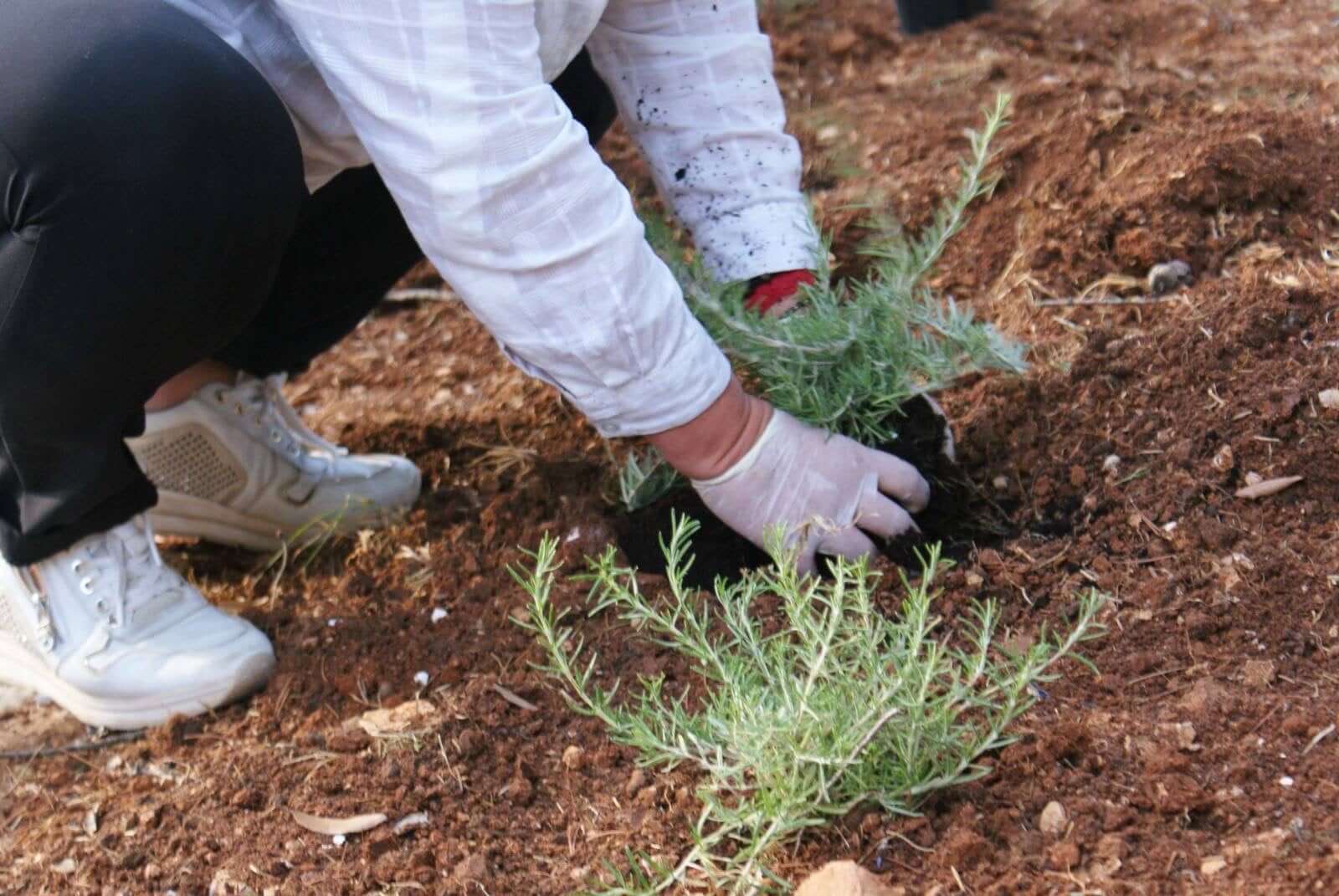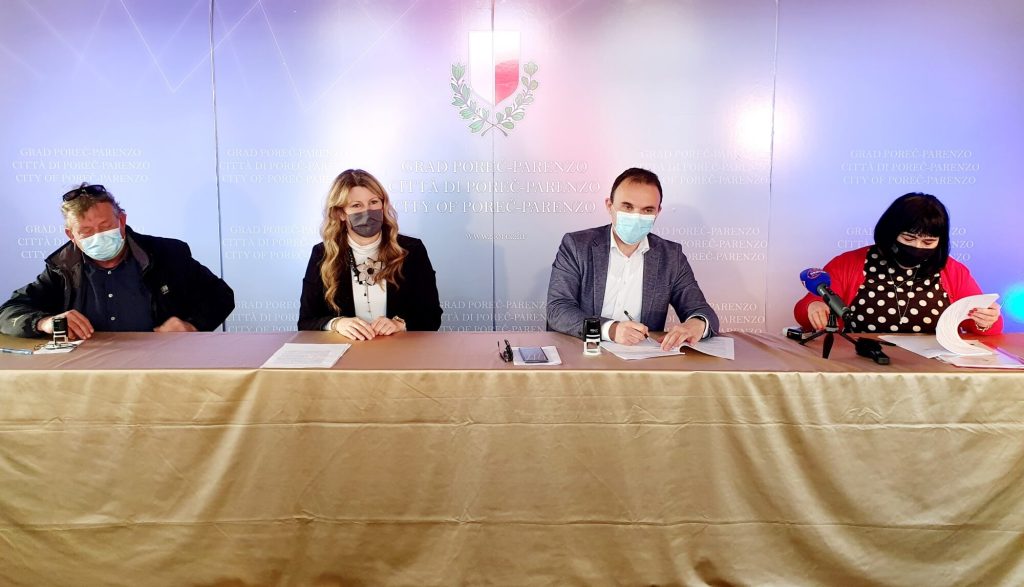Last Friday the city of Poreč signed contracts for assigning funds to the agricultural civil societies to help their projects and programs. The continuation of the tradition established in the last two years, Poreč city gave 150.000 kuna to associations Bio Istra and Agro Poreč through a public contest, both for their day-to-day work in agriculture and for the project “Eko! impjantamo ružmarin” (Eco! let’s plant rosemary) which includes going to schools and giving pupils unprocessed rosemary to plant in the school. The project is at full speed and even the coronavirus pandemic didn’t stop them, as the first phase of the project was done via Zoom. In the early stages of the project, the goal is to establish cooperation between the only two high schools in Poreč: Mate Balot High School and Anton Štifanić Tourist School.
“We started with the first workshop in preparing rosemary seedlings with the agrotechnical pupils at Mate Balot and we will use it to decorate the garden of Anton Štifanić Tourist School,” said Vlasta Radoičić, president of Bio Istra. Her association exists for the past 23 years and is working on the county level, determined to activate as many people as possible to boost family agricultural businesses.
“Poreč was the cornerstone of eco-agriculture and it needs to remain that today and become a modern teacher of the area”, concluded Radojčić.
Poreč is one of the strongholds of Croatian tourism in Istria, but it’s also a truly agricultural city. Loris Peršurić, mayor of Poreč not only knows it but strongly supports it.
“We have a 145-year-old institute for agriculture and tourism as well as a 138-year-old agriculture school, the only one in Istria, which means a lot for our city”, said Peršurić. He adds that is precisely why he tries to support and help projects related to agriculture which includes co-financing the Centre for invasive species in common projects and as mayor, hopes to valorize a wine cellar that dates from the Austro-Hungarian Monarchy rule and is known today as enoteca (wine library) in the community. “Poreč is the headquarters of famous winemakers and olive oil makers and our agricultural story continues to grow and develop”, concludes Peršić.
The city also finances the project “Apply for Agriculture School – Produce Food and Take Care of the Environment” which resulted in a 50% increase in pupils educating in the school and there are opportunities for pupils to continue education in the field in Poreč too.

seedling planting © Udruga Bio Istra
Local olive treasure
Poreč is also proud of its local olive species Porečka Rosulja, which was first described by a famous local scientist Carlo Hugues 120 years ago. The olive wasn’t researched much after that, but today, scientists from the Agriculture and Tourism Institute are out on the field to pursue the described treasure of the Poreč olive scene. Agro Poreč association secretary Zdenko Barac whose organization is dedicated to promoting local agriculture and seedlings distribution is included in this research. He is thankful that the city recognized the importance of Porečka Rosulja and its investment in the “mother field” in Poreč where new seedlings will be prepared for further distribution and for another olive plantation in St. Martin Bay, which will have both educational purposes and will be a nice architectural touch to the landscape of the area. No to mention, a nice dedication to Hugues which first described the species.
“The number of seedlings is growing. This is the third year of the project where we have 530 seedlings and we started with 170 in 2019”, says Barac. The plan is to prepare the best seeding material and apply them to the Croatian Center for Agriculture, Food, and Rural Affairs.
“There are very few cases in the world where a species is named after city so we can boast about that”, concluded Barac.
For more about agriculture in Croatia follow TCN’s dedicated page.










